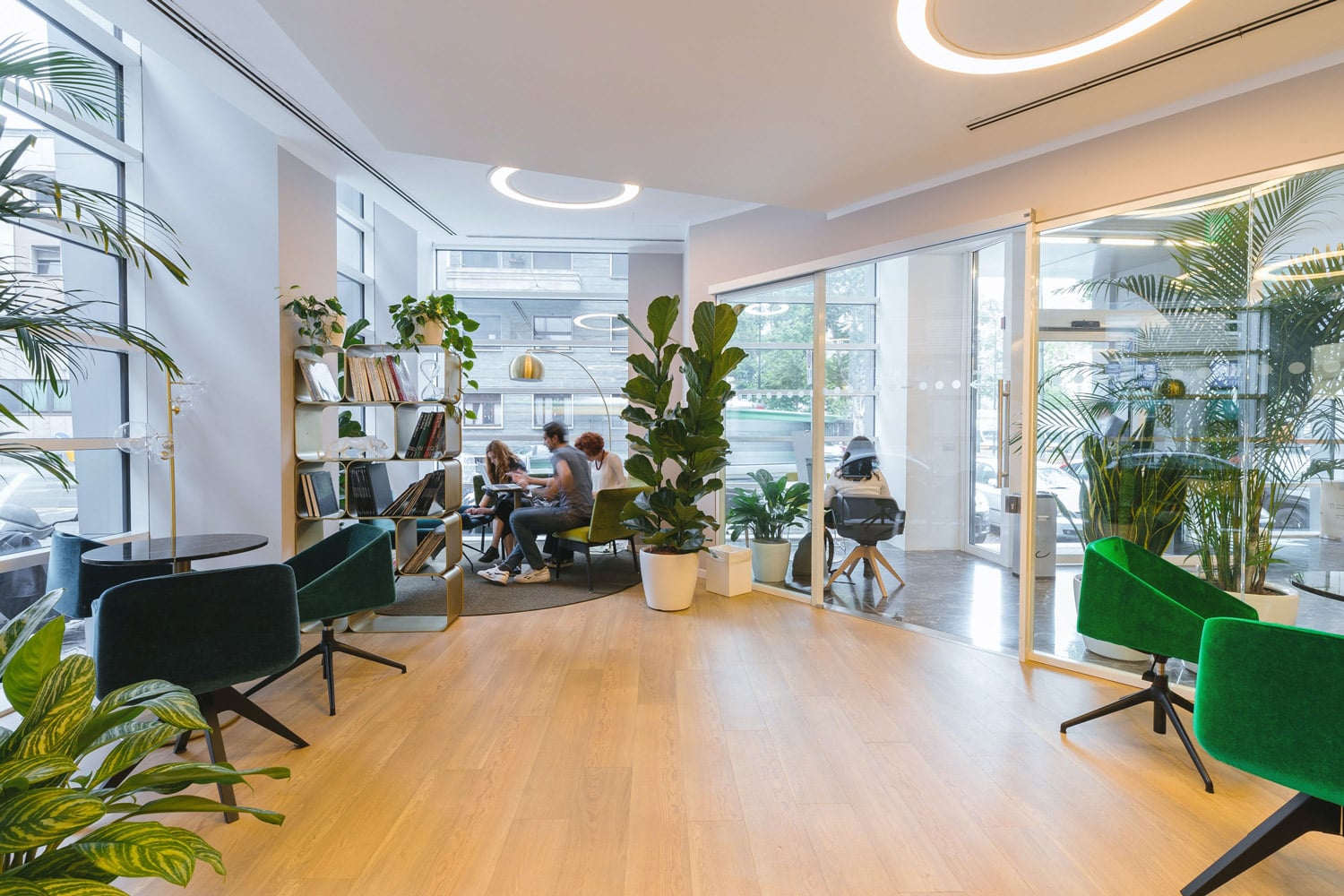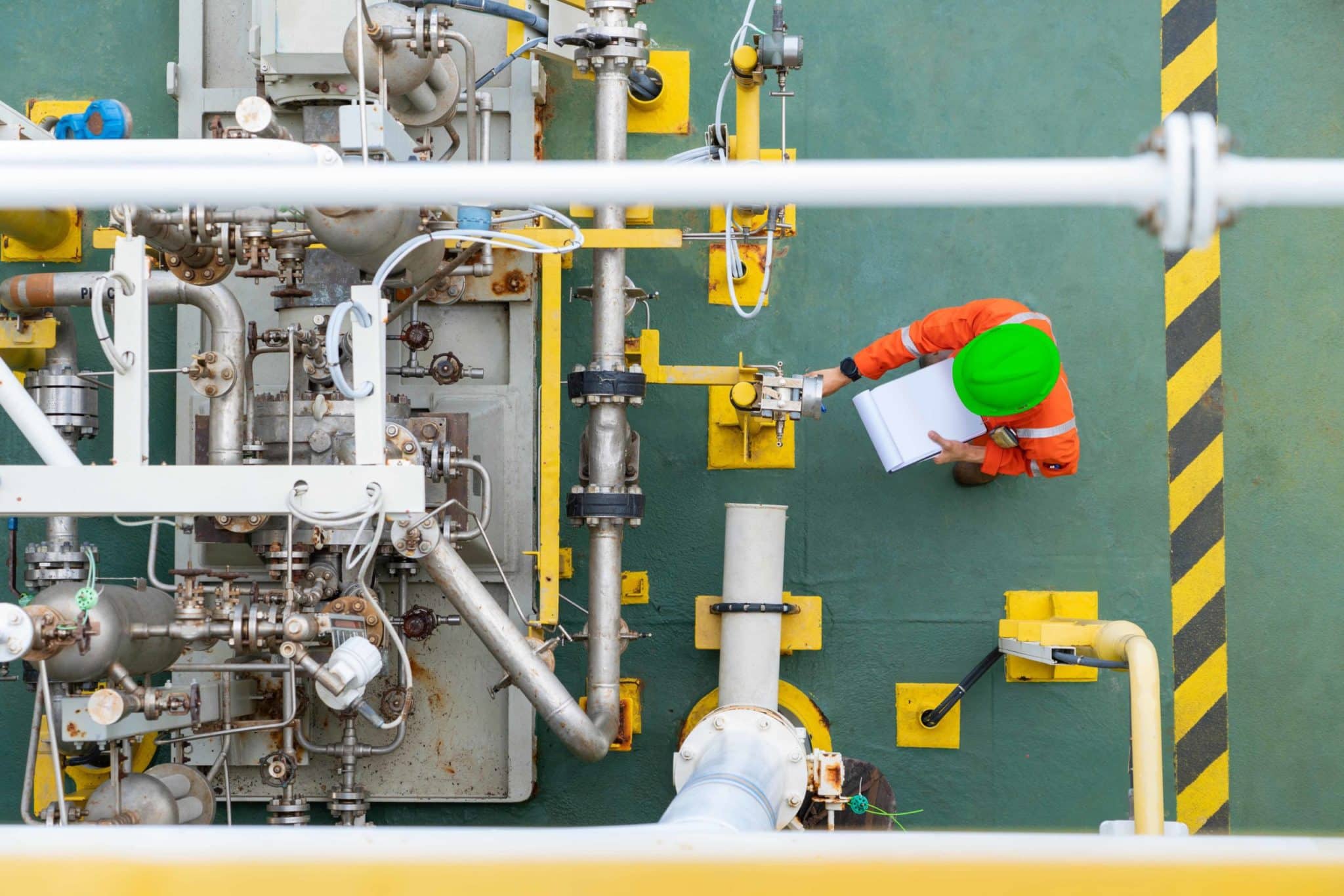01/03/2025
Ensuring a seamless experience for passengers at the various touchpoints, such as check-in, security, boarding and baggage claim, is critical to your airport efficiencies.
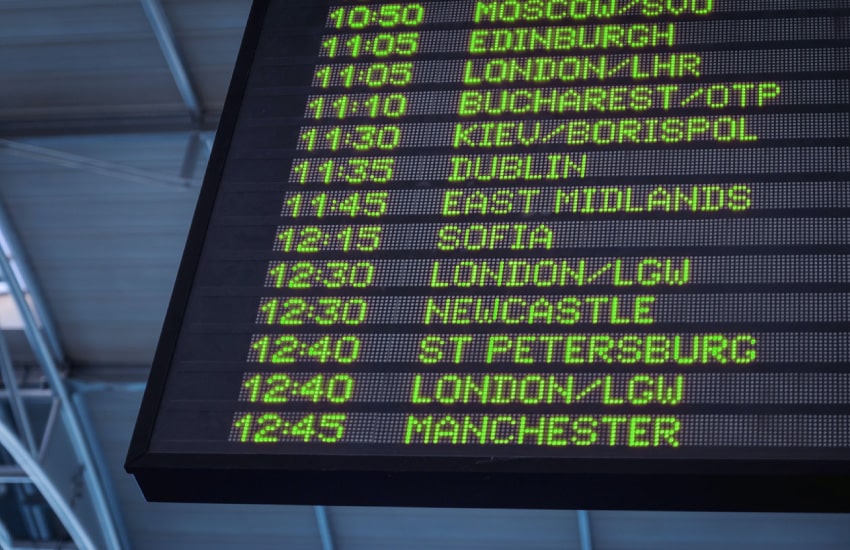
The need for a single pane of glass
Airports and facilities are in constant expansion, either by bringing in new airports to their network or by building fresh terminals to ensure better passenger flow. Both mean regular updates in terms of operations and introducing new components to an already rather complex ecosystem. Then, new queries are thrown into the mix, such as how to make the ventilation talk to the lighting or the luggage belt to the security cameras. On top of that, there’s the maintenance of each of these systems to keep in mind.
With nearly two decades of supporting 50+ airports to transform and become more efficient, we’ve seen these challenges firsthand. There is an emerging need to build an integrated and centralised control platform to provide a management console that presents data from all of their systems in one unified display, otherwise known as a “single pane of glass” solution.
With different systems coming from multiple vendors, this integration allows airports to manage them more efficiently, provide a seamless experience to passengers, and allow for further expansion as they continue to grow.
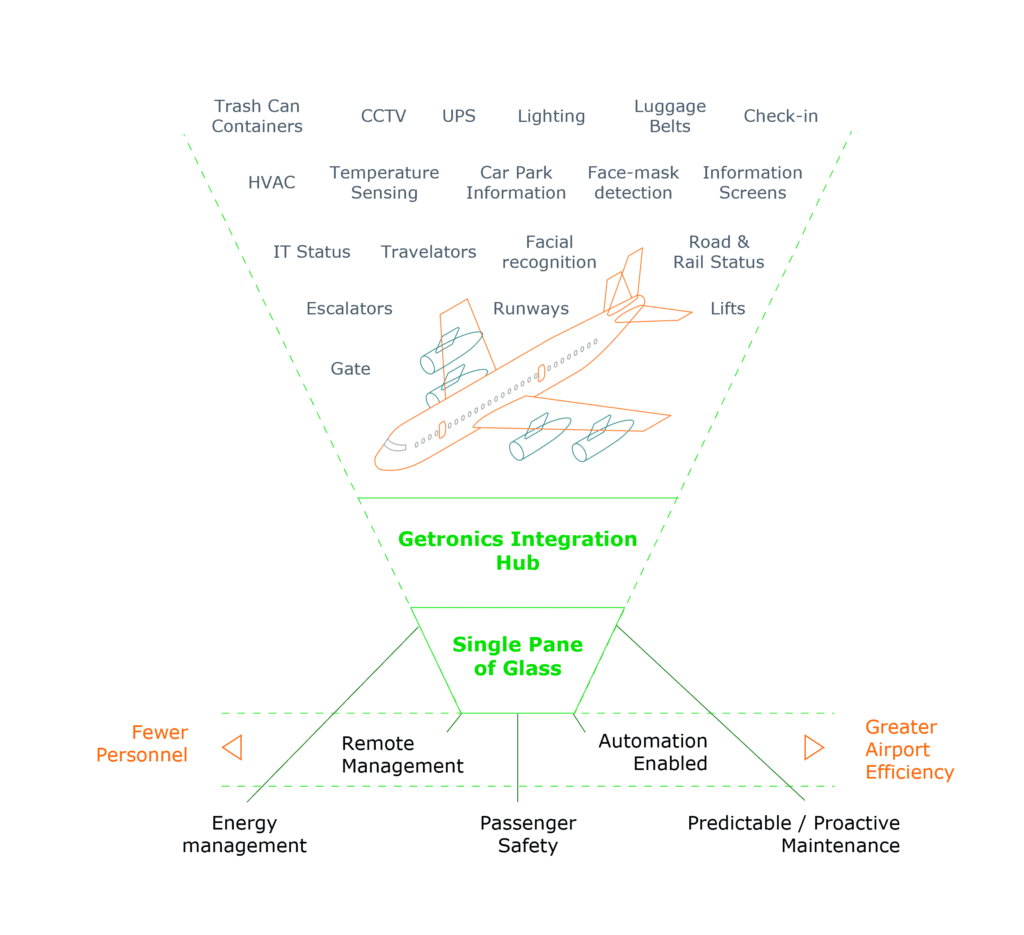
Optimising Operations Through Data – Pre and Post Covid-19
Getronics’ single pane of glass solution for all airport systems, including regulators, sensors, elevators, ramps, escalators, fire safety, ventilation, luggage transport system, and more, offers full control of your operations, while establishing a framework to allow standardisation for future new vendors.
Every single component – normally acquired and implemented in a silo to the next one – is brought into one single platform. By capturing this data, airports can benefit from regular reports on the status of each system to understand behaviour patterns, fix issues promptly if they fail, ensure optimal operations, and deliver top-notch passenger experience.
This all-encompassing smart solution combines supervisory control and data acquisition (SCADA) software integration, automation, workflows, and reporting mechanisms to help your staff become more productive – as it did for one of our customers, even during COVID times. With a decrease in passenger traffic and to keep their staff safe, we were able to enable remote control and maintenance, allowing engineers to solve issues from home.
Smashing Sustainability and Energy Goals
As most of the important hubs for transportation, airports are held accountable for a number of international norms and regulations, especially those relating to energy consumption.
Fortunately, Getronics’ solutions enable airport operators to meet these energy efficiency requirements by interconnecting and monitoring every component and streamlining data collection for easier reporting. This data allows customers to predict outcomes and plan ahead based on current behaviour.
For example, we are helping one of our customers with the deployment of electric charging spots in parking lots, predicting the demand based on trending data from the past years.
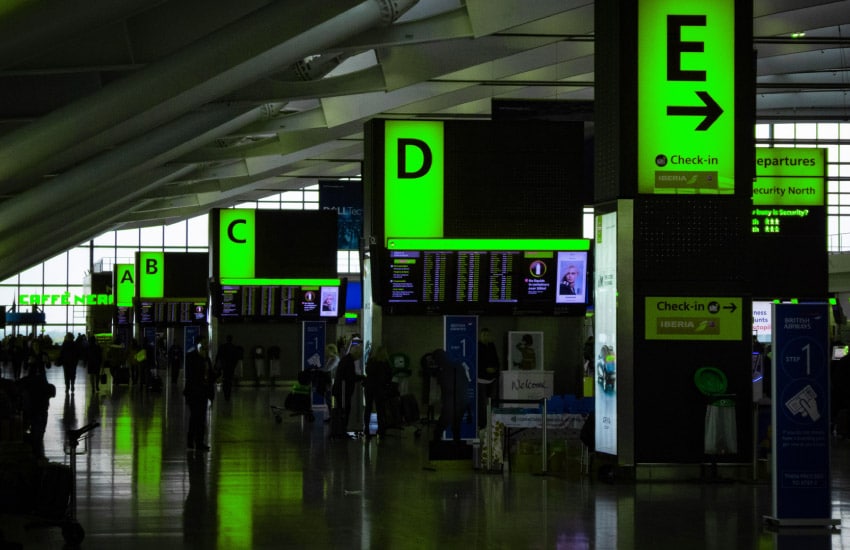
In a nutshell – the benefits of a real-time control platform
Let’s take, for instance, passenger disembarkation logistics where we need to ensure that the aircraft is securely docked at the finger, the air conditioning and lighting systems of the gangway are working, and the passenger departure flows are activated. All these involve orchestrating features such as anti-return doors, conveyors, escalators, elevators, lighting, and air conditioning to offer the best passenger experience while being energy efficient.
By adopting a single pane of glass approach, airport operations are managed more efficiently. In addition to achieving:
- A secure and reliable infrastructure
- Standardisation via control templates for existing and current vendors as you expand or adopt new systems
- Efficient support and predictable maintenance of all airport systems and operations, avoiding downtime
- Data analytics and accurate reporting driving a more informed decision-making process
- Reduction of carbon footprint to meet sustainability goals, in addition to accurate data and trends to support sustainability reports
- Less manual effort and manual error
- Enhanced passenger experience at every touchpoint

